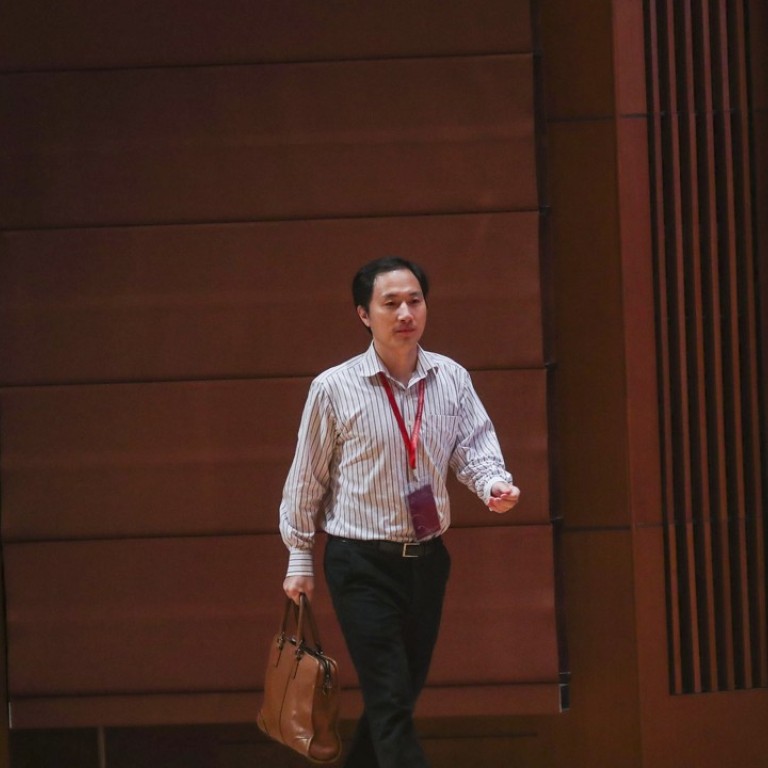
Ethics and safety are key with probe into claims of gene editing
- The risks to humankind of the technique allegedly used by scientist He Jiankui are so great that experiments with human embryos have been avoided
Chinese scientist He Jiankui is proud that he has created the world’s first genetically edited babies. Whether his claim is true has yet to be verified; he has not produced evidence and appears to have carried out his work in secret and without the approval of authorities. But if he has truly achieved a breakthrough he should be filled with regret, not pride. The risks to humankind of the technique allegedly used are so great that although researchers have known about it for some time, they have avoided experimentation with human embryos out of concern for safety and moral and ethical reasons.
The alarm from officials and peers is justified. He has apologised, but not for what he claims to have done at a university and hospital in Shenzhen, which both have denied knowing about. Instead, the associate professor at Southern University of Science and Technology told the human genome editing summit in Hong Kong that he was sorry about his breakthrough being unintentionally leaked through the media before it had been reviewed by an unnamed scientific journal. The storm he created on Monday by announcing twin girls born earlier this month with genes altered to protect them against HIV carried by their parents was furthered when he revealed another volunteer was pregnant.
The science ministry has launched an investigation. A declaration published online signed by 122 scientists, most on the mainland, but some in the United States, condemned the claim and referred to him as being “crazy”. The response is to be expected; China joined dozens of other countries in 2003 in banning gene editing on humans. Scientists and ethicists generally agree that until research has determined such experiments are safe, they should not be used for reproductive purposes.
The reasoning is simple: altering a single gene in a cell can have knock-on effects, with unknown consequences to the well-being and health of the child that is born. Experiments with mice have not yet been carried out without ill effects. There is the possibility edited genes and the risks associated with them could be passed through the generations, with implications for the global gene pool. He ignored such medical and ethical matters in going ahead with his research, his argument being that the potential benefits outweighed the risks.
Mainland oversight of medical research is not as stringent as in the West and, if his claims are shown to be genuine, the inconvenient reality of a lack of adequate regulation and monitoring will have been revealed. If investigations show his work was done without approval, those involved have to be punished and loopholes closed. Too much is at stake for humanity for the issue to be taken lightly, no matter what the scientific achievement.

